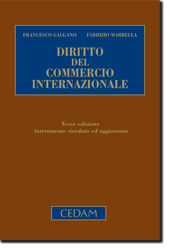Talia Einhorn, who is a professor of law at Ariel and Tel Aviv Universities, has posted The Recognition and Enforcement of Foreign Judgments on International Commercial Arbitral Awards on SSRN. The abstract reads:
The question of the recognition and enforcement of foreign judgments on arbitral awards, as distinct from the recognition and enforcement of the arbitral awards themselves, finds diverging answers in different jurisdictions and in legal doctrine. With respect to judgments on judgments, the general rule is that a judgment rendered in State B, enforcing or recognizing in State B a judgment rendered in State A, cannot as such be enforced or recognized in State C. It is rather the original judgment rendered in State A that has to be relied upon in recognition and enforcement proceedings in all other states.
Judgments on arbitral awards may be treated differently. In the European Union, the recognition and enforcement of such judgments is regulated by the legal system of each Member State. Council Regulation (EC) 44/2001 of 22 December 2000 on Jurisdiction and the Recognition and Enforcement of Judgments in Civil and Commercial Matters (“Brussels I”), and formerly the Brussels Convention (1968), as well as the Lugano Convention (1988), excluded “arbitration” from their scope. The Schlosser Report, as well as the decisions of the European Court of Justice in this matter, made it clear that the exclusion covers not only the recognition and enforcement of arbitral awards, covered already by the New York Convention, but extends also to all court proceedings related to arbitration, including proceedings to set aside an arbitral award and proceedings concerning the recognition and enforcement of a foreign arbitral award. The practice in different states (England, France, Germany, , Israel, the American Law Institute [ALI] first draft proposal of a Federal Statute on Recognition and Enforcement of Foreign Judgments) is diverse.
This paper submits that only the arbitral award should be the subject of recognition and enforcement proceedings. Foreign judgments on arbitral awards should not be recognized or enforced. For policy reasons, an exception should be made with respect to a court decision at the arbitral seat to set aside (or vacate) the award. With a view to coordinating results, weight may also be given, depending upon the circumstances, to issues decided by other foreign court judgments on arbitral judgments, as those may indicate that the award-debtor had waived a certain defense, or that he is precluded from raising one.
The paper is confined to judgments in proceedings undertaken under the New York Convention on the Recognition and Enforcement of Foreign Arbitral Awards, 1958 (NYC). As of January 2011, 145 UN Member States have become NYC Contracting Parties. The numerous cases decided by national courts under the Convention and the vast literature devoted to its interpretation provide a rather comprehensive database.
Accordingly, this paper addresses the rules concerning recognition and enforcement of foreign arbitral awards under the NYC, noting the differences in practice among the NYC Contracting States (2.); an inquiry whether foreign judgments on arbitral awards should be recognized and enforced which first studies the analogous case of judgments on judgments (3.1), and then considers the differences between enforcing judgments on arbitral awards and enforcing the arbitral awards themselves (3.2); an analysis of the special case of judgments setting aside arbitral awards (4.); the possible coordination of results via waiver and preclusion (5.); and final conclusions (6.)
The paper was published in the last issue of the Yearbook of Private International Law.



 See this
See this 
 The workshop on «
The workshop on «  On 26 September 2011, the
On 26 September 2011, the